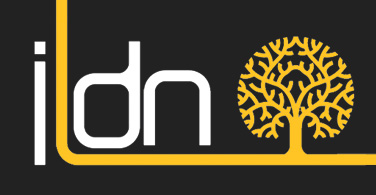Staff in Local Development Companies are gearing up to play a central role in getting Ireland back to work over the coming months. Their representative organisation, Irish Local Development Network (ILDN), has been working with members in their preparations to assist jobseekers as the economy begins to reopen.
Local Development Companies (LDCs) were set up 28 years ago (under various names such as Partnerships, LEADER companies) as a not-for-profit delivery arm for state programmes in rural and community development, labour market activation, social inclusion and social enterprise services.
They have played a key role in the response to previous waves of recession and to unemployment blackspots. In recent years, they have focussed on the multiple challenges that the long-term unemployed face in accessing the labour market, but they are no strangers to working with newly unemployed and young people seeking sustainable employment.
Today, there are 49 of these are multi-sectoral partnerships covering the entire country. They act as Community Engagement Partners for government departments and agencies. With 2,100 employees on the ground, they support approx. 15,000 community groups and 173,000 individuals annually through €300+ million of state-funded integrated programming.
These include the Government’s national social inclusion programme, LEADER and as well as a range of employment services such as the Local Employment Service (LES), Jobs Clubs, Tús, Rural Social Scheme, and Back to Work Enterprise Allowance.
The LDC approach is an integrated holistic one, offering a menu of integrated services to address barriers to the labour market. While a service user might present initially as a jobseeker, they will have access to integrated supports including training, childcare, self-employment, mental health, enterprise, recreational and personal development initiatives.
The success of this approach is recognised in a myriad of recent reports including the 2019 Indecon Report on the LES placement rates and the ESRI’s findings on the impact of the Pre-Employment Supports offered through the Social Inclusion and Community Activation Programme (SICAP).
The Government has also officially endorsed the approach and its impacts in its publication of Sustainable, Inclusive and Empowered Communities last year: “Work by Local Development Companies with long-term unemployed people would be almost impossible for central government to replicate.” (Government of Ireland, Sustainable, Inclusive & Empowered Communities, 2019, p.20)
Local Development Company Capacity to Respond to Crisis
In recent weeks, Local Development Companies have been inundated with calls for support for food, family supports and employment supports – each day, over 2,220 people have been seeking such services and as the reopening begins to gather pace, access to employment is the number one priority.
“This time, it’s so different for many reasons,” says ILDN manager Joe Saunders, “the scale and speed are unprecedented, there’s no emigration valve, we’re not sure what re-opening will look like etc. There are, of course, similarities to previous crises in that the most vulnerable in the labour market have been affected worst and they will require the greatest support to compete for sustainable, decent work.”
Local Development Companies are well-positioned to play a key role in the response. They are nationwide, they are connected to local structures and employers, have staff qualified in guidance and mediation, they have local, accessible premises and their staff are trusted by jobseekers.
As organisations, they have a proven agility to adapt and move fast – Government Departments continually require LDCs to initiate new programmes and thus, LDCs have proven mechanisms for programme set-up, upscaling, recruitment, governance, local publicity etc.
Their track record is with both jobseekers and employers – the 2019 Indecon Report records full-time employment placement for 28.8% of hard-to-place long-term unemployed (in addition to part-time work) whilst 89% of employer respondents indicated that their engagement with an LES had helped them to find suitable candidates for available jobs.
Finally, the collaborative approach is central – LDCs operate childcare, social inclusion, education, personal development, training and self-employment supports and so address the plurality of barriers that jobseekers face in accessing the labour market.
Local Development Companies are ready for the challenge of Getting Ireland Back to Work and will collaborate with all agencies and groups necessary to achieve that results the country needs over the next period.
The Irish Local Development Network website is www.ildn.ie and for details of your Local Development Company, visit https://ildn.ie/directory/
